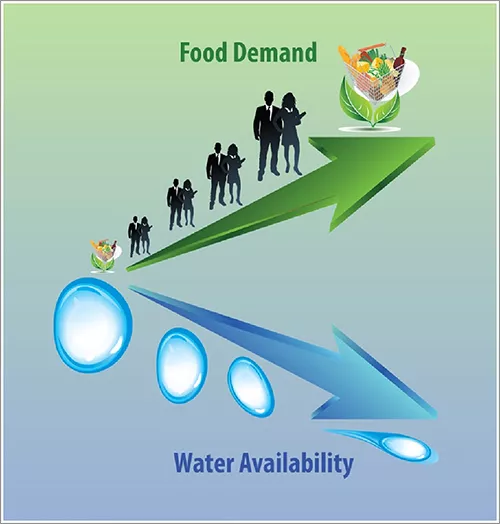Economics and Productivity of Water in the Agriculture Sector
19 ديسمبر 2013
A course on “Economics and Productivity of Water in Agriculture Sector” was organized jointly between the Ministry of Environment and Water (MOEW) and the International Center for Biosaline Agriculture (ICBA) and was conducted at ICBA campus in Dubai from 17-19 December 2013.
“The issue that is catching attention today from global, regional, and local perspective is that water is becoming an increasingly scarce resource required for development and food security” said Dr. Berhanu Degefa, Agricultural Economist at ICBA. “Over the past three days we discussed the need for better water management at farm level to attain higher productivity, economic and efficiency… The motto was ‘crop per drop’.” Dr. Degefa noted that more studies and knowledge generation is needed on how to promote the practice of water management and economic use of water at farm level in the context of UAE.
Eng. Mohammed Ahmed Ismail, a participant in the training course from MOEW, said “This course covered important and vital topics. It highlighted the issue of water scarcity and increasing demand and gave an array of solutions that could be adopted to reduce the impact of the problem. This includes, rationing of water usage, introducing new technologies, increase in farmers’ awareness. Overall I am very pleased with the results coming out of this program.”
Eng. Majdi Aldin Mounir Talat, another participant from the MOEW, praised the technical and practical aspects of the training program. He recommended increasing the period of the training program and to include the participants in hands-on field work training.
In his closing remarks, Dr. Ahmed Al Sharif, Deputy Director General of ICBA, said “this course discussed strategies to achieve sustainable growth for irrigated agriculture. It included the need to address necessary quantities of crops and methods of increasing the efficiency and productivity of water and appropriate crop selection and linking them to all of the economic aspect of the use and productivity. They form some of the important factors for the sustainable use of groundwater resources efficiently and effectively in the agricultural sector. This is particularly important for the UAE where agriculture consumes the largest amount of available water resources. The discussion also covered the trade-offs between using traditional and non-traditional irrigation. These components provide the necessary information that helps planners of agricultural development policies and water conservation to make informed decisions.” Dr. Al Sharif concluded by thanking the Ministry of Environment and Water for its strong partnership and support to ICBA. He thanked the participants for engaging in the course and encouraged them to keep in touch ICBA and its scientists.









